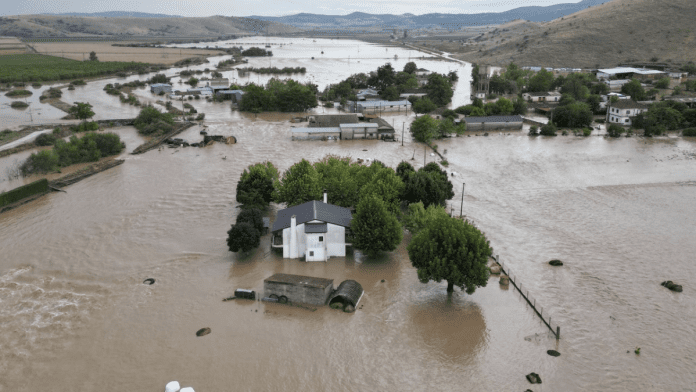News in brief: Floods in Greece caused extensive damage, including the destruction of fruit trees, corn, and a significant portion of the cotton crop, along with the loss of over 200,000 livestock. Analysts estimate the short-term economic impact could reach up to 5 billion euros, particularly affecting the agricultural hub of the Thessaly plain and leaving many farmers facing uncertain futures.
Floods in Greece destroyed fruit trees, corn, and around a fifth of the country’s cotton crop, a BBC report said. Besides the crops, more than 200,000 livestock have been killed.
The floods had hit the center of Greece after Storm Daniel in early September and caused widespread devastation and economic damage.
Estimates by analysts suggest that the short-term effects alone could cost the Greek economy up to 5 billion euros (or $5.3bn).
One of the worst hit areas is the Thessaly plain, one of the country’s main agricultural regions, and there are fears about the impact on food production.
Many farmers have lost their homes, crops, and livestock to the floods. They are now facing an uncertain future with some worried about rising food prices and the long-term impact on the region’s economy.
The Greek government has promised to help the victims of the flooding. However, some say that the assistance is not enough. They are calling for more financial aid and support to help them rebuild their lives and livelihoods.
The devastating floods in Greece are a reminder of the vulnerability of agriculture to climate change. Extreme weather events have become more frequent and severe in recent times. Consequently, farmers around the world are increasingly being challenged to produce food in a sustainable way.



